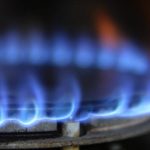ISLAMABAD: The government is likely to further increase gas prices in a bid to eliminate the circular debt of Rs181 billion in the gas sector.
The Petroleum Division has informed Prime Minister Imran Khan that the hike in gas prices is inevitable because of the high circular debt of Rs181 billion in the wake of a wide gap between average prescribed gas prices and weighted average sale prices.
In this regard, the government has decided to launch an effective campaign to promote awareness among the general public of the rationale of gas price revision before notifying any increase in tariffs.
Sources told The Express Tribune that the Petroleum Division had briefed the cabinet in a recent meeting, chaired by PM Imran, on tackling the circular debt in the gas sector, revision in gas sale prices, liquefied natural gas (LNG) pricing and the way forward. Authorities in the Petroleum Division revealed that the circular debt in the gas sector had reached Rs181 billion.
The major reason was the widening gap between average prescribed prices determined by the Oil and Gas Regulatory Authority (Ogra) and the weighted average sale prices for the period FY13 to FY18. The revision in gas prices was, therefore, inevitable for the sustainability of the sector, said sources quoting the Petroleum Division authorities.
Cabinet members were also briefed about the gas bills being paid by consumers over the past eight months. The Petroleum Division revealed that domestic consumers had paid a negligible amount in eight months, resulting in a dramatic increase of almost 50% in such consumers in winter months due to slab migration.
In winter last year, the consumers were not given the benefit of lower slab if the consumption exceeded the upper limit of that slab. Officials said the billing mechanism had been revised that provided the benefit of preceding slab to the domestic consumers since September this year.
A cabinet member also raised the issue of gas supply to the residents of Sui, Balochistan where Pakistan Petroleum Limited (PPL) was operating. Responding to that, the Petroleum Division said the residents of Sui were receiving gas without paying any bill.
The Petroleum Division raised the issue of depleting gas reserves and LNG imports to overcome gas shortage in the country. It was highlighted that domestic gas production was going down constantly by 7% every year.
It also pointed to the insufficient gas supply to major gas-producing provinces – Sindh and Khyber-Pakhtunkhwa – and proposed the introduction of a weighted average gas price formula for supply to the domestic consumers.
Since LNG could not be provided without subsidy to the consumers who were in the lower slabs, the only way to ensure sufficient supply to all was the weighted average cost of gas, said sources while quoting a proposal floated by the Petroleum Division.
However, it would require approval of the Council of Common Interests (CCI) and amendment to the Ogra Ordinance 2002.
A cabinet member pointed out that subsidy was not being fully reflected in urea prices being given to fertiliser manufacturers. He underlined the need for constituting a committee in a bid to negotiate ex-factory fertiliser prices with the manufacturers.
The cabinet constituted a committee comprising the adviser to prime minister on industries and production, minister for planning, development and special initiatives, minister for national food security and special assistant to the prime minister on petroleum.
They would negotiate ex-factory prices with representatives of the fertiliser industry which were commensurate with the subsidy being given by the government. The committee will present its report to the cabinet for its decision.





